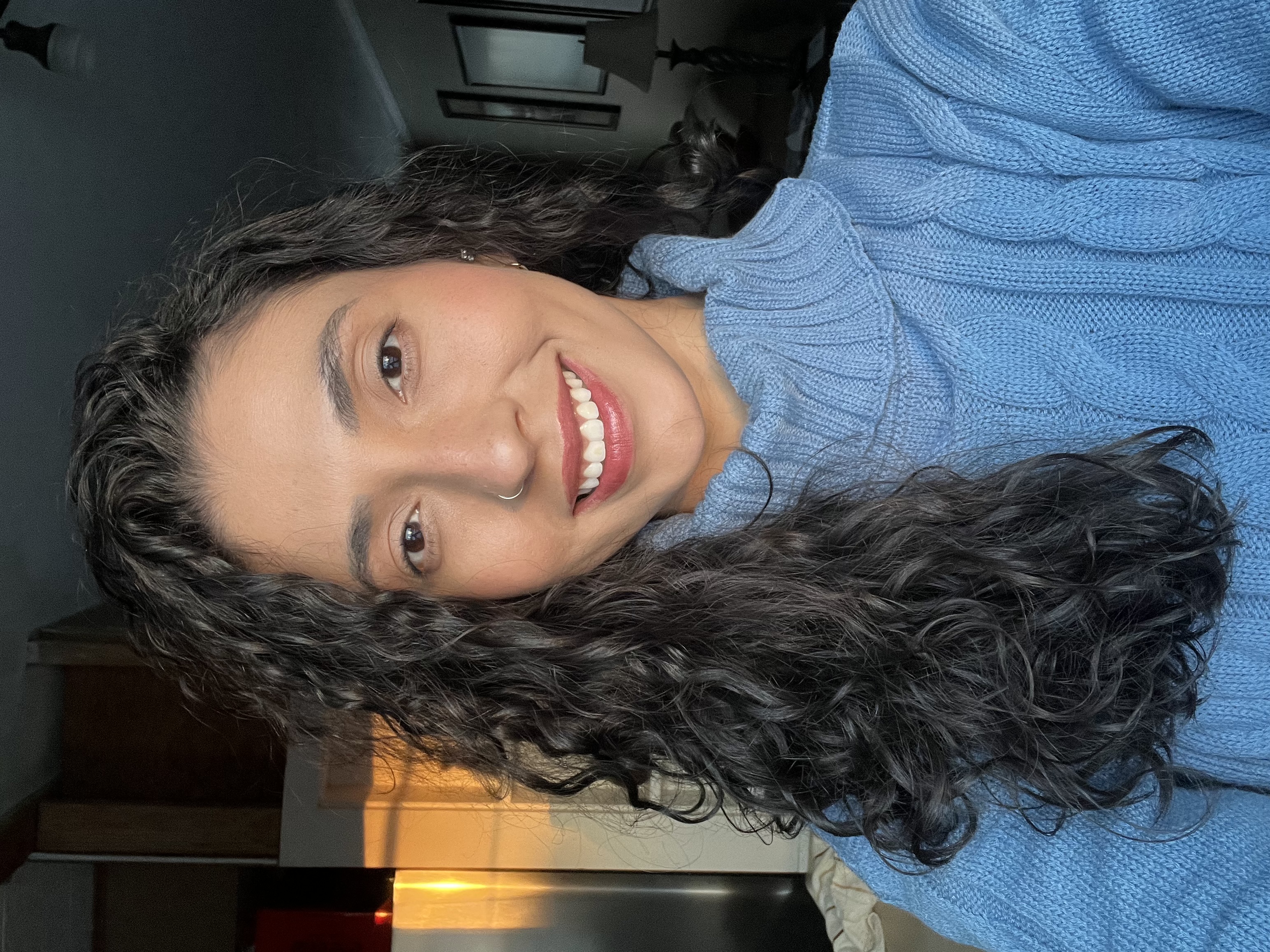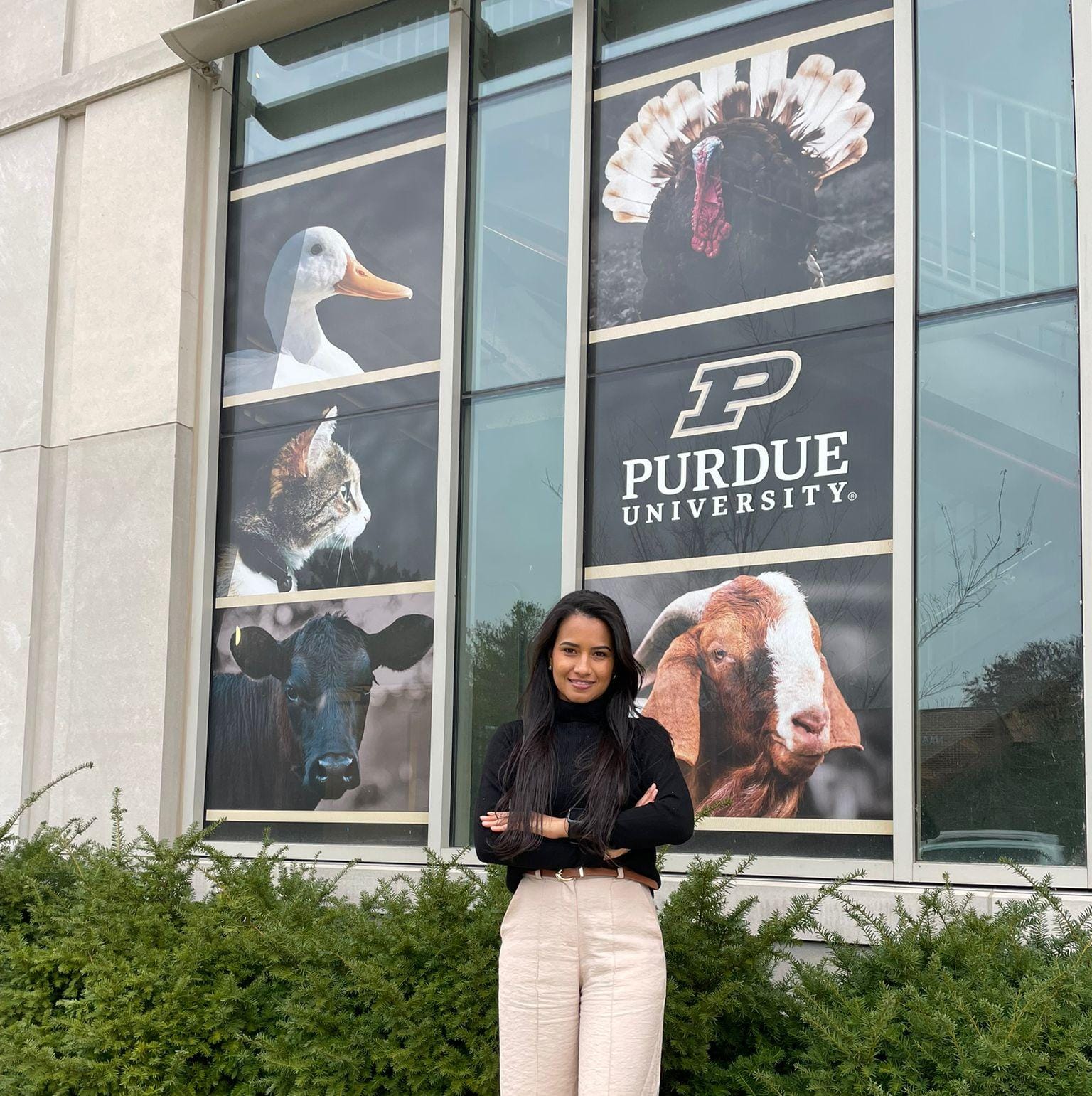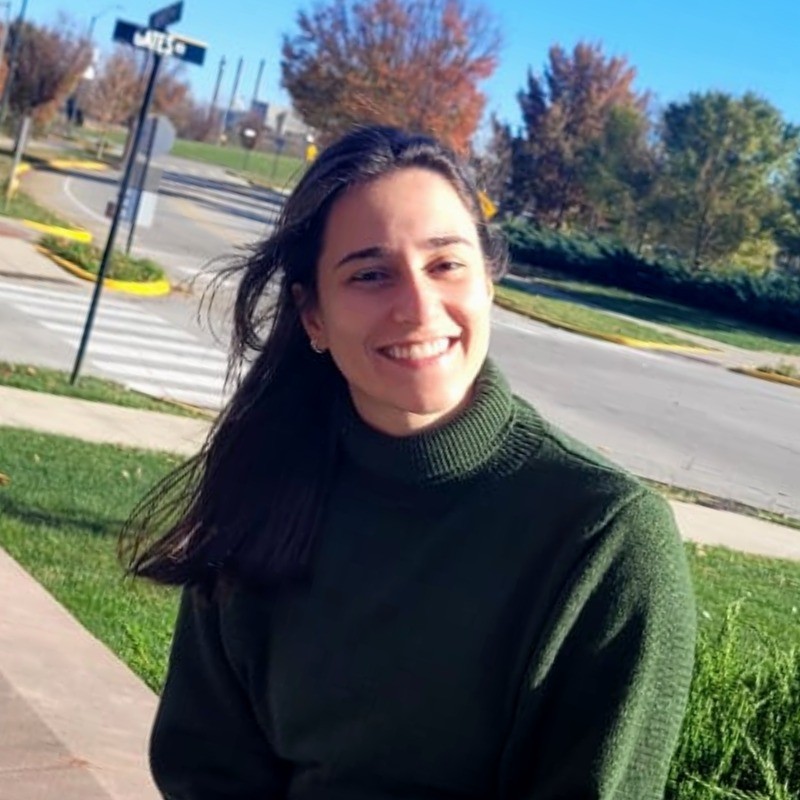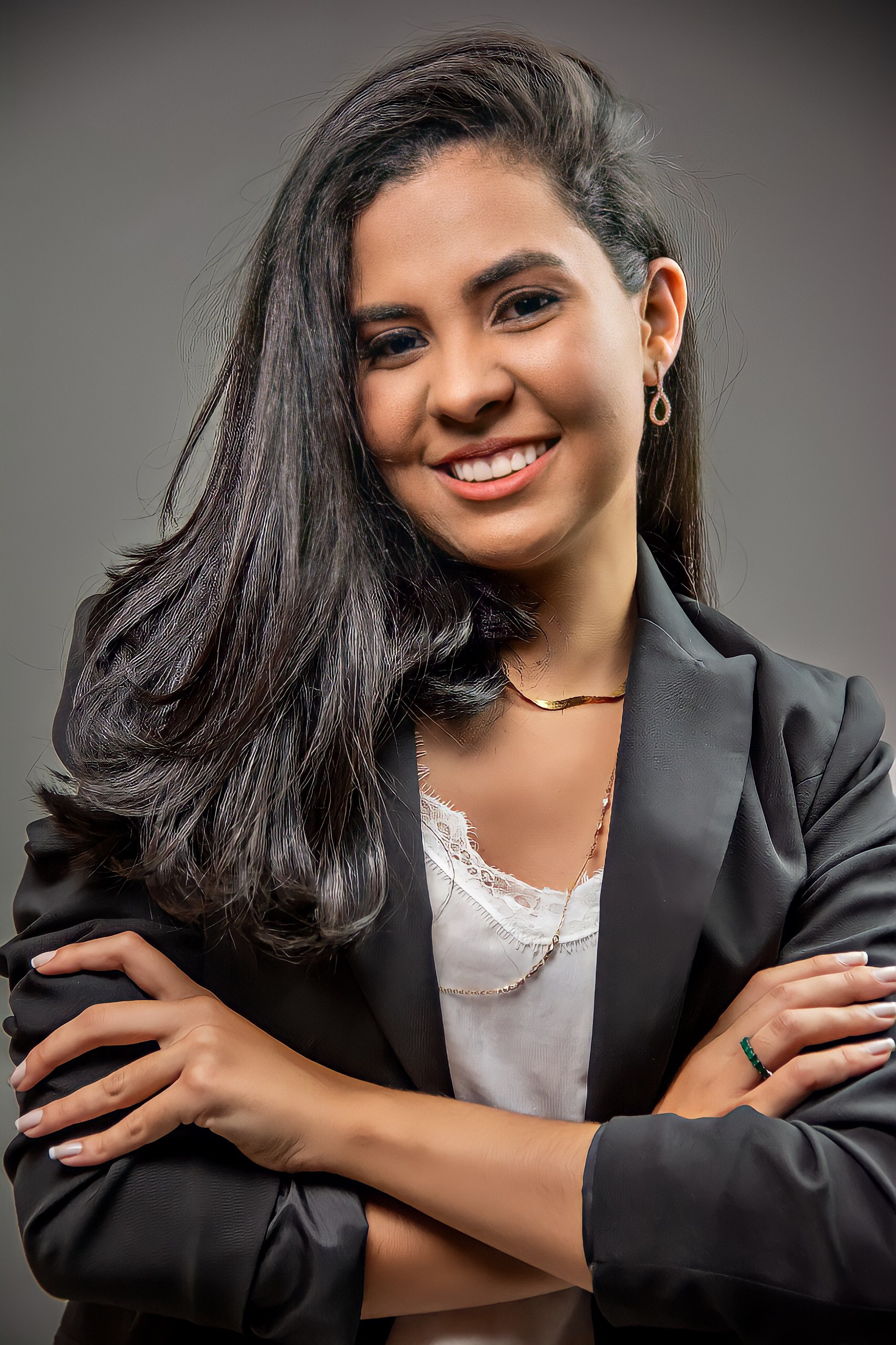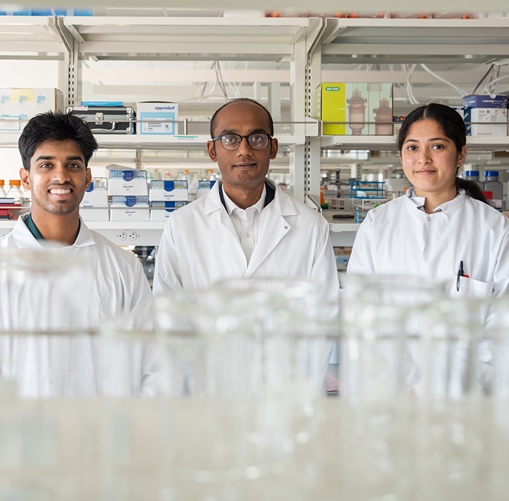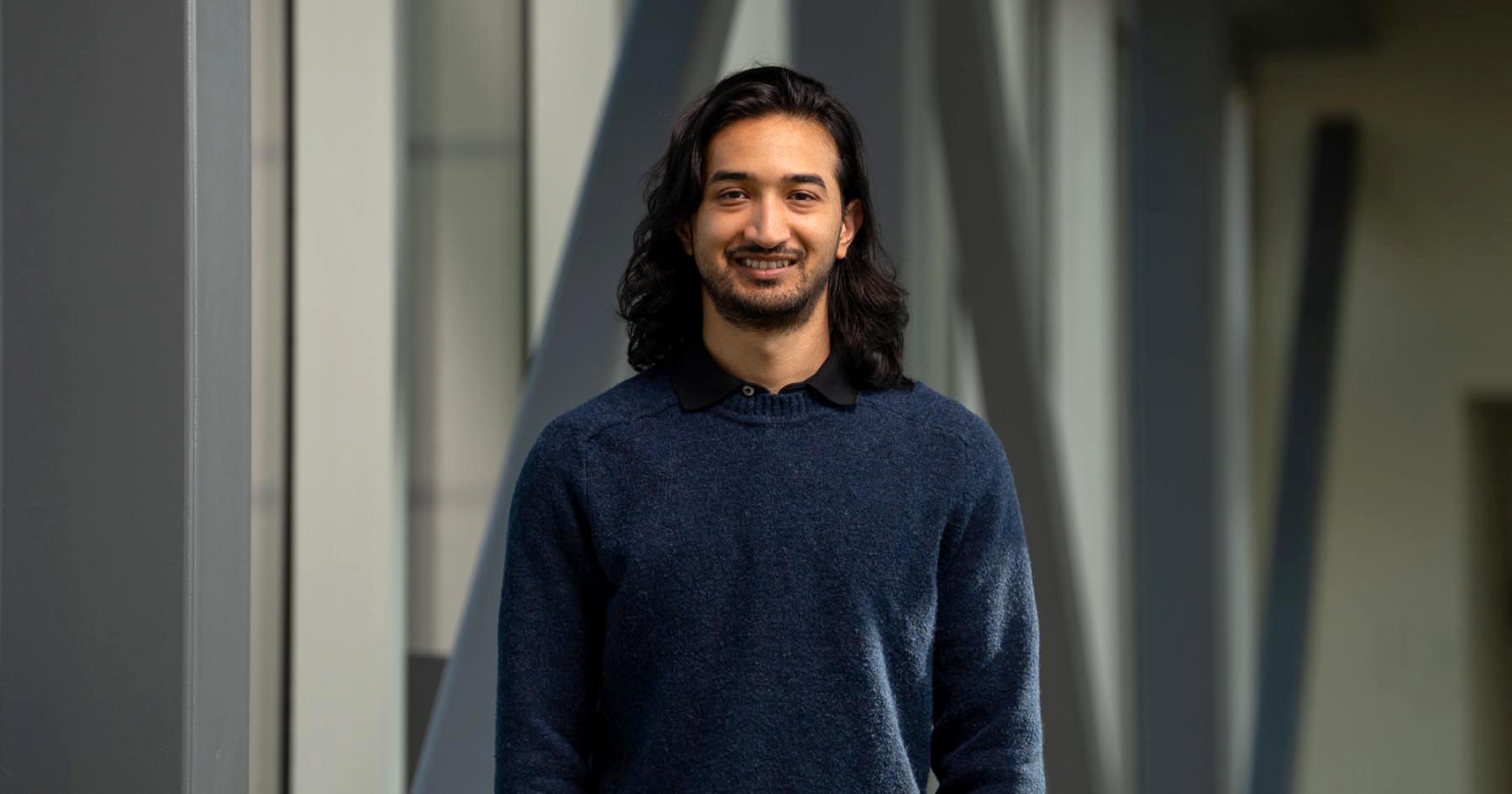Purdue Animal Sciences deepens global reach through visiting scholars program
The Purdue Animal Sciences Department offers a visiting scholars program, which allows scholars from institutions around the globe to collaborate on departmental research activities. These visiting scholars contribute to the department's mission by engaging in innovative research, participating in academic programs and fostering cross-institutional collaborations.
Four Brazilian scholars are currently advancing their research at Purdue, each offering a distinct perspective and contributing to the department’s global impact.
Milena Campos, a visiting Ph.D. student from the Federal University of Bahia in Hinayah Rojas de Oliveira’s research lab, joined the Purdue Animal Sciences Department to broaden her academic and research experience on a global scale. Rojas’ lab focuses on genetic and genomic analysis of traits that are economically significant in livestock species.
“I wanted to gain international research experience, work with experts in my field and access advanced methodologies and resources that may not be as readily available in Brazil,” Campos said. “Purdue is well known for its strong programs in animal sciences and quantitative genetics, so it was a natural choice for me.”
In Luiz Brito’s lab, visiting scholar Cassiane Gomes dos Santos is applying genomic and statistical methods to study heat stress indicators in lactating sows. A Ph.D. student at the Federal University of Viçosa, Gomes dos Santos joined Purdue through Brazil’s CNPq-funded “Chamada Atlânticas – Programa Beatriz Nascimento de Mulheres na Ciência.” Brito’s research lab explores the complex traits that influence animal behavior, welfare, environmental sustainability and the ability of livestock to adapt to challenging conditions.
“I anticipated gaining technical expertise, but I have also benefited from interdisciplinary collaborations and access to high-quality research resources,” said Gomes dos Santos. “The university provides excellent technical support, and the academic environment here has surpassed my expectations in terms of collaboration and professional growth.”
Camila Mussi, also a visiting scholar in Brito’s lab, holds a bachelor’s degree in veterinary medicine from the University of São Paulo. She is currently conducting research at Purdue University to lay the groundwork for her future doctoral studies.
“I am working on research that combines genetics and video analysis to understand welfare and health in dairy animals. This is an important step for my future Ph.D. research, as I plan to apply this technology and findings to the development of better breeding strategies for livestock,” Mussi said. “The combination of genetics and video analysis will help improve selection methods for breeding programs and enhance the overall productivity of animals, which is a major concern in my home institution’s current research.”
Maria Rita Gonçalves da Silva, also a visiting scholar in Brito’s lab, joined Purdue after completing her master’s degree in animal science at the Federal University of Viçosa. Her research focuses on the genetic background of sow longevity traits, a project tied to both academic and industry collaborations.
“When I finished my master’s, I felt the need to step outside my comfort zone and see how research is conducted in different environments,” she said. “Dr. Brito is from my home university, and I really admire his work. This opportunity to learn from his group and contribute to meaningful research has been invaluable.”
All four scholars emphasized the importance of international collaboration and experiencing new cultures.
“The best part is sharing experiences with people from different backgrounds,” Gonçalves da Silva said. “It’s helped me grow as a person and as a scientist.”
All four visiting scholars also advised others who are considering a similar experience to embrace the opportunity fully.
“Be open to new experiences, engage actively with faculty and students and don’t hesitate to ask questions,” Mussi said. “It’s not just about research—it’s about growing as a person and a professional.”
By welcoming scholars from around the world, the Purdue Animal Sciences Department not only strengthens its research mission but also fosters meaningful global connections.

